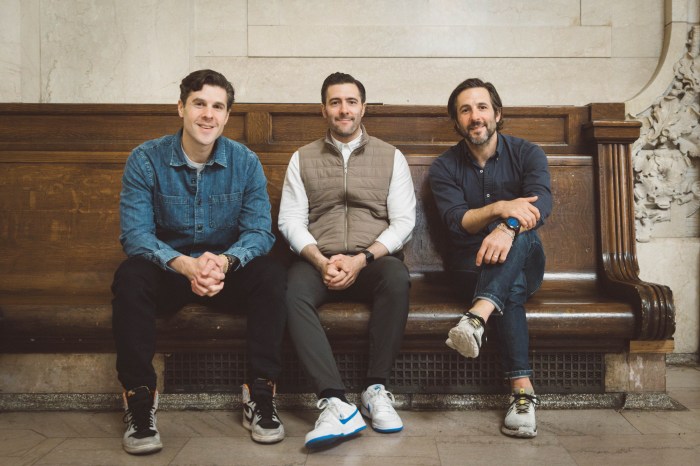If you’ve ever wanted to turn your barren backyard or empty rooftop into a green space for fresh veggies, herbs and flowers, Annie Novak has you covered.
The co-founder of the Eagle Street Rooftop Farm in Greenpoint and manager of the Edible Academy at the New York Botanical Garden is also behind the new book, “The Rooftop Growing Guide” ($23, Ten Speed Press), a how-to in green roofs, container gardening, crop planning, pest management, harvesting and more.
“I remember thinking when I was asked to help start the Eagle Street Rooftop Farm that there was a book missing,” Novak says, who had to navigate legal and safety issues to implement her farming knowledge on a rooftop. “If you want to see a good idea spread, you have to teach people how to do it. My hope with this book was that everyone who has a question mark gets to a place where they have an exclamation point. They can get excited about what they want to do.”
Curious? Novak shares her tips for getting started:
Get permission first
“Permission is the first thing, and often the step that’s skipped,” Novak says. “If you’re going to invest the time and money in a space, you need to make sure it’s all right.”
Check out the space
Novak says to be honest with yourself about what your space can do and how much sunlight you get. “Light really changes the plants that you can grow — if you want to grow vegetables, they are the most light-hungry plants that are out there,” says Novak, adding that you’d need a minimum of six hours of sunlight for vegetables. If you get less than that, consider shade-loving plants. “It’s important to know enough about your site that when you plant up there it’s not completely out of context,” she says.
Use water workarounds
If you have to climb up a fire escape with a bucket of water every day, you might want to consider using self-irrigated containers, Novak says, or growing plants that are more dry-tolerant, like sedums or prickly pear cactus. “You don’t have to use your precious time in the garden doing something that is more onerous,” she says.
Research soil
“Spending a little time educating yourself about the best soil and growing medium is really important,” Novak says of above-ground gardening. “There’s a proclivity to go to a gardening center and buy the more affordable version, but the soil is the foundation for everything you’re about to grow. Especially when growing vegetables you want to make sure you’re using a high-quality product that’s going to last a while.” If you’re gardening in the ground, you should get your soil tested. “Make sure there isn’t anything in the soil that’s harmful to you,” Novak says.
Start planning now
The prime time to start planting outside in New York is April 15 to May 15, says Novak, which gives you time to start planning what you want to do. “People get the sense in the springtime that the year is already over, but you can start planting things all through the fall, it just depends on what you want to grow,” Novak says. “There’s plenty of time to practice.” Novak recommends going to your local plant store for supplies and answers to any questions. “If you go to a larger store you can end up talking to someone who doesn’t know a cactus from a hammer,” she says.
Consider the sunflower
Don’t know where to start? Novak is a big fan of sunflowers because they’re easy to plant, help remediate the soil, feed many different bee species when they flower, are edible — from the seeds to the sprout to the flower — and “are really cheerful looking,” she says. “Sunflowers are my go-to for anyone who doesn’t know what they’re doing.”
If you go
Annie Novak, author of “The Rooftop Growing Guide,” will hold an urban gardening workshop at the Brooklyn Kitchen on April 5 from 6:30-8:30, $50, 100 Frost St., Williamsburg.
She will a workshop on urban farming with native plants and pollinators at Brooklyn Grange on April 6 from 6:30-8:30 p.m., $40, 63 Flushing Ave., Brooklyn Navy Yard.
She will hold a planting demonstration at Madewell Williamsburg on April 7 from 7-9 p.m., FREE, 127 N. Sixth St., Williamsburg.
She will also participate in a panel discussion on rooftop farming at the Lowline Lab on April 17 at noon, FREE, 140 Essex St.
For more info, visit rooftopgrowingguide.com.

































